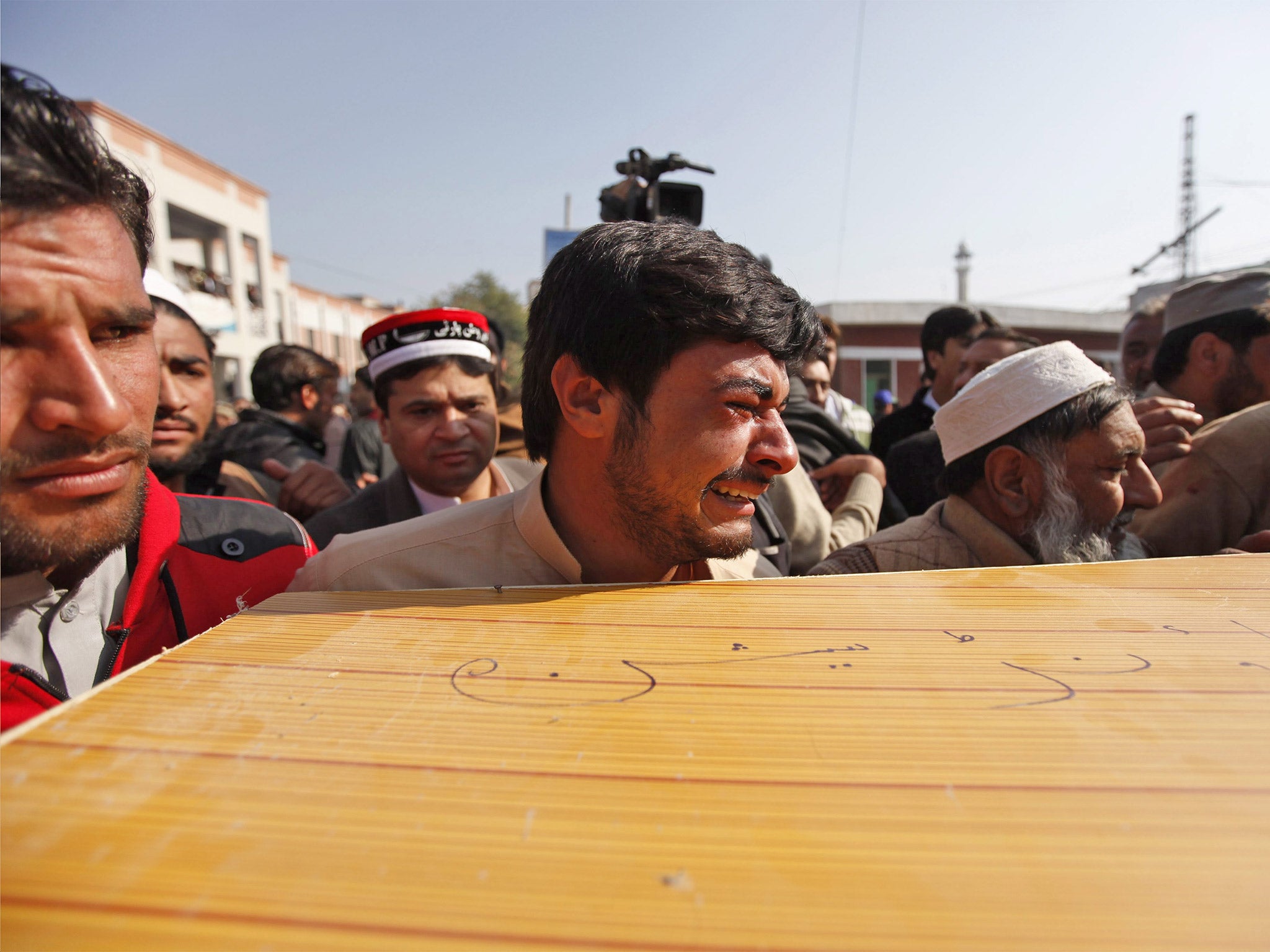Pakistan university assault: A warning for Turkey as Islamists turn on their old allies in Peshawar
Both countries are waging a war on terrorism, but their enemies appear to have several faces

Like Pakistan, like Turkey. If the university massacre outside the old North West Frontier city of Peshawar was a further sign that Prime Minister Nawaz Sharif is still far from “conquering terrorism”, it is a portent of things to come for Turkey’s far more arrogant President, Recep Tayip Erdogan. For after allowing its borders to be used as a conduit for foreign fighters and smugglers into Syria – just as Pakistan did into Afghanistan after the Soviet invasion of 1979 – Turkey is now experiencing almost as many violent attacks on its people as Pakistan.
Erdogan’s government has increasingly emphasised its Islamic credentials, just as President Mohammad Zia ul-Haq did in Pakistan in the 1970s. And Turkey now finds that the Isis “caliphate” with which it was prepared to treat – allowing it to control part of Syria’s border with Turkey, facilitating Western Muslims wishing to cross in the opposite direction, permitting oil smugglers to bring their produce from Isis-held territory – is assaulting Ankara and Istanbul.
The powerful Pakistani intelligence forces – the infamous Inter-Services Intelligence – sent weapons to the anti-Soviet mujahedin and afterwards co-operated with the Taliban. Indeed, the Taliban managed to infiltrate the Pakistani military and intelligence institutions; and Isis now appears to have some infiltrators within the Turkish state apparatus. In Pakistan’s case, its war with the Taliban is even more complicated, since its own Islamist enemies appear to have several faces. Thus while one “Taliban” group claimed the mass murder at Bacha Khan University in Charsadda, another condemned the attacks as “un-Islamic”.
But like the assault on the school for Pakistani army officers’ children in Peshawar in 2014, which killed more than 140, the slaughter at Charsadda was a massacre of the innocents. It is easy to explain such bloodbaths as a response to the secular education which Islamist groups despise. But in Pakistan’s case, it was almost certainly a response to further military operations against the Taliban. The Bacha Khan University was named after Abdul Ghaffar Khan, the “frontier Gandhi”, and its Sufi-inspired Islam and Ghandian non-violence made it an obvious target for the Taliban.

David Gosling, who was headmaster of Edwardes College in Peshawar, says that the attacks on education targets “drive a coach and horses” through Pakistani opposition leader Imran Khan’s conviction that the government must negotiate with the Taliban. Pakistan’s dilemma, Gosling says, is “aggravated by its legacy of an earlier commitment to the extended cold war and the likelihood of future Taliban gains in Afghanistan”.
Nawaz Sharif is left repeating his old mantra – that Pakistan is united in the battle to destroy “the menace of terrorism”. As for Turkey, it is now involved in its own “cold war” between Russia and America over Syria and is playing with the same dangerous cards as Pakistan. The Turks have the Kurds as joker in the pack – and claim that their “menace” of terrorism includes both Isis and the Kurds. It’s a rash decision to take on two armed groups at the same time. But it’s the same cold war inheritance.
Bookmark popover
Removed from bookmarks